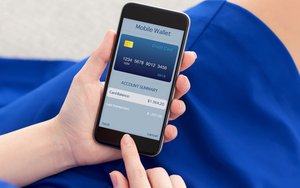Mobile Payments Slow, But Tech Changing Retail Experience
- by Ben Frederick @mp_benfred, June 14, 2016
 Shoppers consider mobile payments to be the least secure of all the various avenues for purchase. As such, they’ve been somewhat reluctant to adopt the technology, but
slower growth doesn’t mean the tech won’t change how people buy things.
Shoppers consider mobile payments to be the least secure of all the various avenues for purchase. As such, they’ve been somewhat reluctant to adopt the technology, but
slower growth doesn’t mean the tech won’t change how people buy things. It just means it will happen slower.
The data comes via a survey by Walker Sands, titled "The Future of Retail." The survey is based on the online responses of 1,433 consumers across the U.S. Respondents were asked questions about their preferences regarding emerging retail technology as well as their shopping habits.
Some 36% of consumers have used some form of mobile payment in a store within the past year, while 33% have used a peer-to-peer payment app. Another 61% cite security and 58% cite privacy as their main concerns about the technology.
Many retailers still don’t offer a mobile payment option, and the survey concludes that consumers would be more likely to adopt the tech if the option was more ubiquitous.
About 19% of respondents used Android Pay, 12% used a retailer’s mobile app, and 11% used Apple Pay. Younger consumers are more than twice as likely to have used a peer-to-peer payment app. They are also more likely to complain about retailer’s lack of preparedness.
Most shoppers still prefer to make their purchases in stores for most categories, except books, electronics and office supplies.
Retailers are still experimenting with different ways to incorporate their online and offline stores—the most publicized example being beacons — though a steep path lies ahead if they want to scale the tech. Also, 70% of consumers say that they would opt into beacon services if retailers offered the right incentives.


